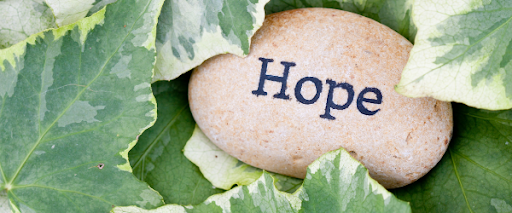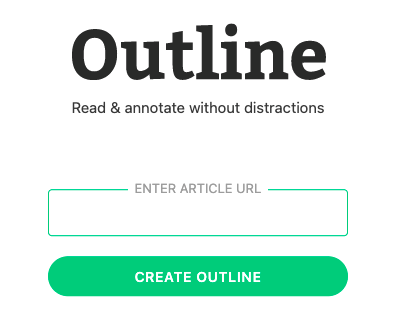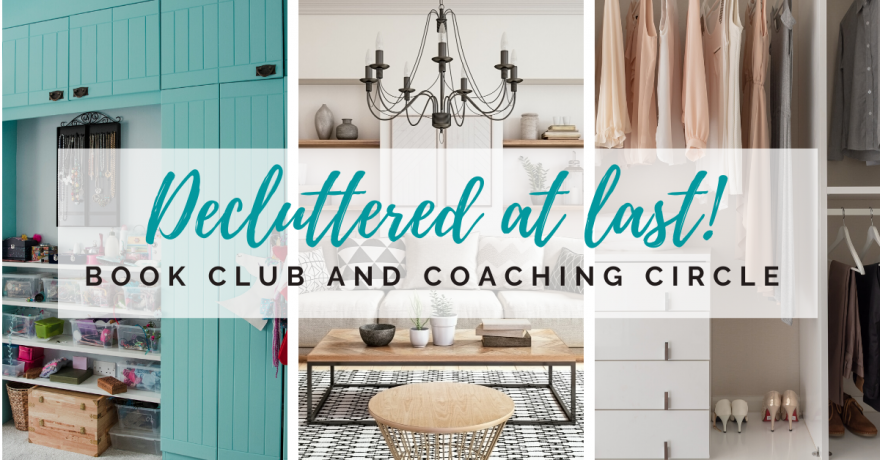|
December 14, 2021

HOPE in a Time of Change
“The question is not what you look at, but what you see.”
—Henry David Thoreau
It’s December, the time of year when we may be reflecting on what has happened in our lives in 2021. Did you have expectations about the way you wanted your life to unfold? How much control do you believe you have with decisions you have made this year? Given the challenges we have experienced with COVID, random acts of violence in our nation, racial tensions taking center stage and other personal challenges and losses experienced this year, it is easy to lose track of what really matters to us.
The good news is we can gain control over what happens to us. We are capable of shifting our beliefs about the future. There are tools available to us that we can use to improve our expectations for the future and begin to start anew in 2022. I believe that we can learn how to change our perspective, become more motivated and create a hopeful tomorrow.
What meaning does hope have for you? Hope is being realistic and optimistic about the future, believing your actions and feeling confident that things will work out well. It relates to positive expectations about the future. It’s an action-oriented strength involving agency, the motivation and confidence that goals can be reached, and effective pathways can be devised by us to get that desired future.
What we know is that negative emotions restrict us. When we are feeling depressed and in a state of negativity, it’s difficult to see what options and resources we have. We can transform negative emotions into positive ones by shifting our perceptions. That is what Positive Psychology is all about — challenging our perceptions to see both sides of an issue, knowing that you have a choice about how you will perceive it. This is a skill that can be taught.
Dan Tomasulo, PhD, author of Learned Hopelessness, states: “High hope people have a high degree of agency, the energy and motivation to bring about change. They also have a pathway, a way to get there, and are particularly good at generating new pathways when they are met with obstacles. They are both resilient and resourceful.”
Tomasulo offers some understanding about hope by sharing some myths and facts about hope.
Myth #1: Hope is a positive emotion
Truth: Hope is the only positive emotion that requires negativity or uncertainty to be activated. If we do not have uncertainty about the future, there would be no need for hope.
Myth #2: Hope influences our belief system
Truth: Hope is informed and influenced by our beliefs. Once we believe there is hope — there is hope.
Myth #3: Hope is the same as faith
Truth: Hope is when we feel we can positively impact our future. Faith is when we have surrendered to something greater.
Myth #4: Hope is regulated by circumstances
Truth: Hope is regulated by calibration and correction rather than by circumstances. It’s about creating a goal. It’s about agency to recalibrate our goal. Small micro-goals can help us recalibrate.
Myth #5: Either you have hope or you don’t
Truth: Hope can be activated, regulated, and facilitated by positivity. It is within your grasp.
Now that we are clear about the myths and truths related to hope, let’s explore how you can cultivate hope in your own life.
Strategies to Cultivate Hope
-
Mindset — When we are feeling hopeless, we are in a fixed mindset believing “I am convinced that nothing will change, I can’t move ahead. I am stuck.” A fixed mindset blocks hope. You need to challenge your beliefs and introduce new possibilities. If you are not familiar with Mindset theory, search Mindset: The New Psychology of Success by author Carol Dweck. You can listen to her talks on YouTube.
-
Train to Hope — Hope relates to our perception of control and what is possible. Hope forecasts how we believe things will be for us in the future. We can change the default settings in our brain by shifting our perceptions repeatedly until new patterns of thought and memory form. We are all capable of training our brains to tune into the hope channel by making tiny micro choices. Look for opportunities and possibilities.
-
Getting Unstuck — Notice you are stuck. Do not resist. When negative emotions hijack us, we need to untangle and change old patterns. We must “believe” that change is possible.
- Observe negative thoughts. Becoming increasingly aware of our thoughts.
- Challenge negative thoughts (are they true?)
- Shift to positive thoughts, feelings, and perceptions by using positive affirmations.
- Slow down the depressed mindset by being mindful. Notice when the negative thoughts emerge.
-
Notice the Good — In the evening think about what happened in your day. Think about 3 things that you are grateful for. They can be very small things. Write them down in a journal. Try this exercise over the next few weeks. There is no need for perfection. Some nights you may write about what you are grateful for and not return to your journal for a few days. It’s all ok.
-
Cultivate Positivity — Get in touch with people who are important to you. Maybe a mentor who has supported you in the past. Reach out and let them know how grateful you are to have them in your life.
-
Use Your Character Strengths — If you don’t know your character strengths go to www.viacharacter.org and take the free VIA character strengths assessment. Take your top 5 strengths and begin using them. Character strengths are your hidden superpowers. They represent the core of who you are.
-
Goal Setting — When we change our perception for the better, we also need others around us to help us maintain our drive. That might be members of a Coach or Therapist Support Group. Whatever we do to improve our wellbeing, or pull us out of a depressive state gets magnified when we add social support to the mix. When we feel the support of others, our chance for success improves dramatically. Setting goals keeps us on track and moves us toward productivity. Be smart about your goals. You don’t want them to be too big. One of the most effective forms of goal setting is what is known as SMART goals (Specific, Measurable, Actionable, Realistic, Timely). Start working on your personal goals for 2022.
-
Engage with Purpose — Take the first step toward building the motivation you need to explore your purpose. Think of what you want to move away from and imagine what you want to move toward. Moving away from what’s holding you back releases your mind from ruminating thoughts and returns you to who you naturally are. You break away from a habit and come back to what is more natural. You were not meant to be stuck in depression, and your strengths can offer you the full force you need to move toward greater hope.
-
Cherish and Appreciate Others — Do not remain isolated. Reach out and connect to the people who bring love and meaning and purpose to your life.
-
Create a Mindfulness Practice in Your Life — Start a meditation practice. Make a commitment to a regular practice even if it is only 10 minutes a day. Research has shown the benefits of meditation and mindfulness. With regular practice, it can change the chemistry of the brain to make us less depressed and anxious and more attentive and resilient.
Wishing you and your loved ones a joyous holiday season!

Victoria Roche, MSW, PCC
ADHD Coach and Life Coach, Mindfulness Coach
More about Victoria
Cool Resource
 Do you ever find yourself just wanting to read the content on a web page without all the flashing ads and woozy fonts? Those of us with ADHD do not do well with flashy and moving items. They are really big distractions and pretty quickly I am headed down a rabbit hole that will be difficult to remove myself from. Do you ever find yourself just wanting to read the content on a web page without all the flashing ads and woozy fonts? Those of us with ADHD do not do well with flashy and moving items. They are really big distractions and pretty quickly I am headed down a rabbit hole that will be difficult to remove myself from.
A web page improver is just what's needed and my friend JR Raphael at Android Intelligence Platinum had just the suggestion to solve my dilemma. It's called Outline and it will help to read and annotate without distractions and do it for free!
JR showed me two different ways to use Outline.
First, you can open outline.com in any browser from any device and just paste the URL of the page you want to reconstruct into that box located at the center. Or you can type these words "outline.com/" directly in front of the URL of the page you are presently viewing — type it right there in the address bar and don’t forget the slash.
Now be prepared to be amazed by the transformation from a crazy busy page to a clean and enjoyable page. If Outline could only transform the mess on my desk from crazy busy to clean I would be a very happy camper!
Upcoming Events
 Productive Days for Professionals with ADHD Productive Days for Professionals with ADHD
Our 6-week course with coaching support begins January 5th, 2022
Are you ready to transform your work experience from burned out and behind to more engaged and productive? In this course, you'll learn ADHD-friendly ways to organize and declutter your work environment, optimize your time and energy to get more done, be strategic with your time, stop procrastination, build on skills for project and task management, and address the five most common productivity saboteurs so you can feel more productive, less overwhelmed and have more time and personal freedom.
Click here to learn more about and register for this class
 DeCluttered At Last | Book Club & Coaching Circle DeCluttered At Last | Book Club & Coaching Circle
Thursday Evenings | 5:30 pm to 6:45 pm Central
Six Live Weekly Virtual Sessions: January and February 2022 — 1/20, 1/27, 2/3, 2/10, 2/17, 2/24
Join us for a Get-It-Done opportunity to deep dive together into what we have found to be an inspirational book while working on your decluttering goals. Receive coaching support from two experienced ADHD Coaches to help you set up reasonable decluttering goals and take the next steps to get the clutter gone. Enjoy the opportunity of working with a group to support and cheer you on.
Click here to learn more about and register for this class
 'Adulting' with ADHD | Group Coaching For Adults 'Adulting' with ADHD | Group Coaching For Adults
Next Group Begins January 5, 2022
The Adulting with ADHD Groups are geared to folks in their 20s and 30s seeking ADHD-friendly approaches, support, and accountability for managing their ADHD. Choose from group coaching only or group coaching plus individual coaching.
Click here to learn more about this group
 Masterful Living with ADHD | Group Coaching For Adults Masterful Living with ADHD | Group Coaching For Adults
Next Group Begins February 8th, 2022
The Masterful Living with ADHD Groups are designed for adults in their 30's and up desiring to work on ADHD-friendly life hacks, skill-building, and strategies to boost their personal effectiveness and quality of life. Choose from group coaching only or group coaching plus individual coaching.
Click here to learn more about this group
Meet Our Team

Learn More About Our Coaches & Schedule a Complimentary Get Acquainted Session
©2021 Center for Living Well with ADHD · All Rights Reserved
Visit Our Website
|